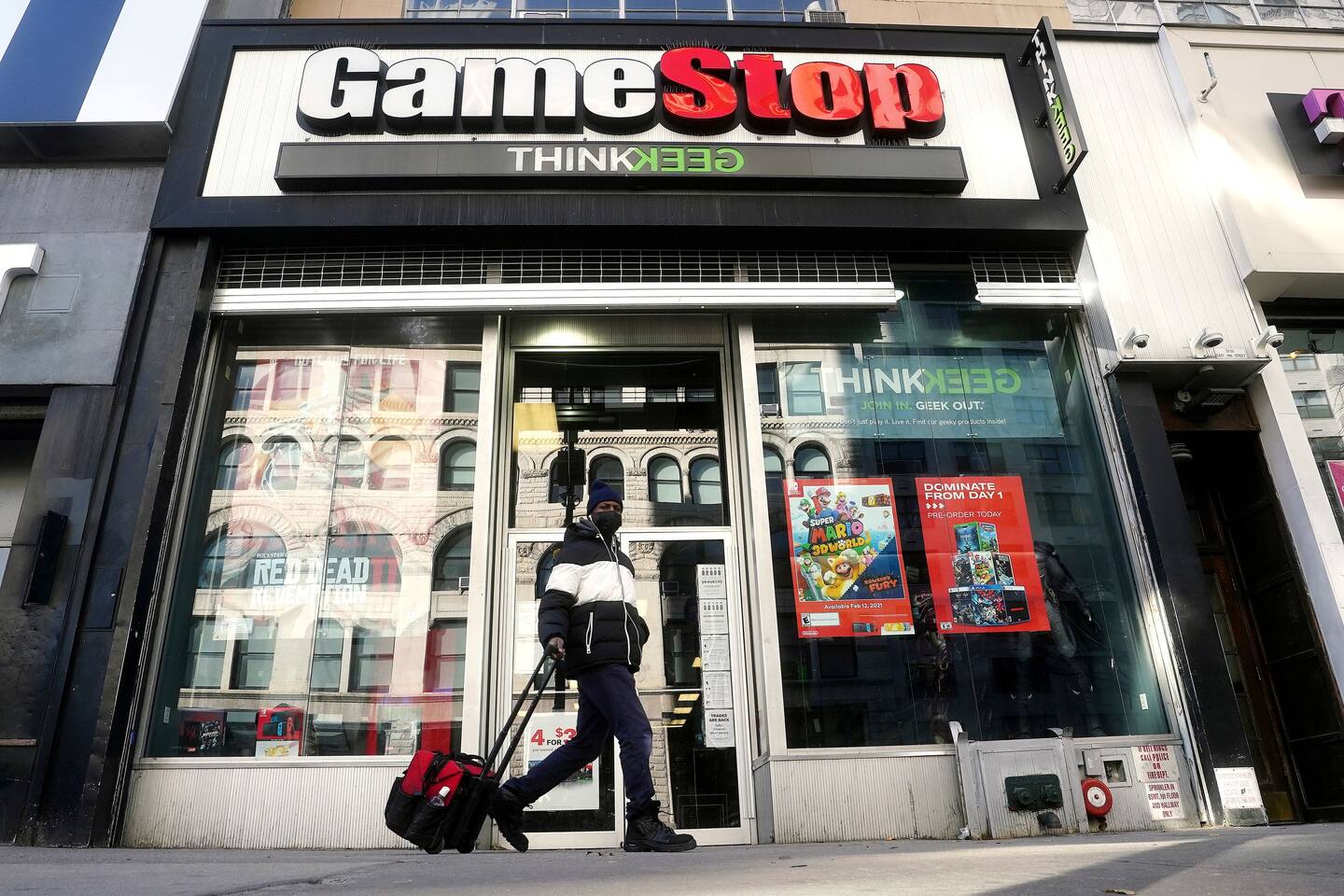GameStop shares tumble as Big Tech reasserts market dominance

As the broader market swelled in anticipation of robust earnings reports from tech giants Amazon and Alphabet, GameStop shares moved in the opposite direction, falling 42 percent, to $130.25, at Tuesday’s open. Other assets and securities that had attracted intense investor interest in recent days, including AMC, BlackBerry and the precious metal silver, also posted morning losses, sliding 38 percent, 12 percent and 7 percent, respectively.
Meanwhile, U.S. stocks overall continued to build on Monday’s positive momentum. The major indexes began to reverse losses from a chaotic January, which ended with a burst of speculative trading fueled in part by the Reddit forum WallStreetBets and other online trading communities.
The Dow Jones industrial average opened up nearly 336 points, or 1.1 percent. The S&P 500 climbed 44 points, or nearly 1.2 percent, while the tech-heavy Nasdaq added 172 points or 1.2 percent. Last week, broad anxiety over the consequences of the market chaos and worrying economic data fueled widespread losses. But optimistic investors eyeing resilient corporate earnings and discussions in Washington over another covid-19 rescue package are driving a comeback.
As of Tuesday morning, the popular trading platform Robinhood maintained its list of restricted stocks, including GameStop, AMC and BlackBerry. The app limits customers who already own those brands in sufficient numbers from purchasing more and bars new customers from buying those stocks above a certain number of shares.
Robinhood has played a central role in the Wall Street drama as a key facilitator for an army of retail trailers and, conversely, for acting as a chokepoint in the middle of the speculative frenzy. Like other stock trading apps, Robinhood temporarily froze customers’ ability to buy GameStop and other highly sought-after shares, prompting a wave of selling and a vocal backlash from customers, lawmakers and business leaders.
The company has since announced it has taken in $3.4 billion in investments to secure its own financials. And the trading app has tried to explain to customers that it limited stock buying in volatile securities to ensure that it met rules on capital requirements.






